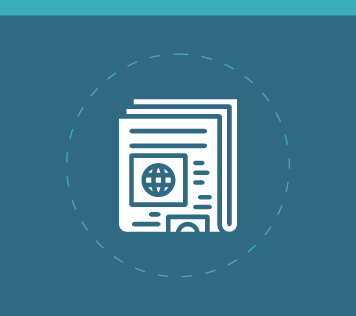WASHINGTON – The American Council of Life Insurers (ACLI) today released its July 2025 Financial Resilience Index measuring middle-class households’ ability to manage financial challenges and plan for a stable future. The Index analyzes key middle-class economic considerations to assess the direction and degree of change in middle-class financial resilience.
The July Index shows that in the first quarter of 2025, cost pressures continued to ease. Resource resilience dropped from year-end 2024 but remained above the Index’s historical norms. Additionally, the Index found:
- Below-average growth in non-retirement wealth and retirement assets largely drove the decline in resource resilience from the end of 2024 to the start of 2025. While wage growth has continued to slow, it remains above the Index’s historical norms.
- After several quarters of dragging on middle-class financial resilience, cost pressures improved at the start of the year, approaching a return to historical norms – although housing inflation remained stubborn.
July 2025 Financial Resilience Index Report
In Q1 2025, the Headline Index – the score used to measure households’ overall financial resilience – was 5.0. While that number is down 15 points from Q4 2024 and 29 points from Q1 2024, it is roughly in line with the Index’s historical average. This indicates that middle class households’ financial resilience is stabilizing at normal levels.
The Resource Resilience Index has been trending downward over the past year, as wage and asset growth have continued to soften, causing a decline in retirement readiness and access to capital for middle-class Americans. The score, however, remains positive overall.
Housing inflation continues to drive cost pressures, but costs overall are stabilizing and trending towards historical norms, making expenses more manageable on the whole. High mortgage rates have driven up the cost of housing even as real estate values have plateaued.
The Financial Resilience Index’s accompanying survey – a nationally representative survey conducted quarterly by YouGov – gives a snapshot of how middle-class households are feeling about the state of their finances.
Key findings show that more than half (55%) of middle-class households are at least somewhat concerned about the risk of a serious decline in their financial situation, and one-in-five (20%) are very concerned. These figures closely reflect sentiments captured in 2024.
Almost half (46%) of middle-class households also report they are not confident they will be able to build sufficient retirement savings. And 40% are not confident they will be financially protected in the event of a major medical expense, the need for long-term care or the unexpected death of an income-earner.
“The Financial Resilience Index shows just how much middle-class Americans are disproportionately exposed to economic volatility that come from life’s risks,” said ACLI President & CEO David Chavern. “Whether it’s running out of retirement savings, paying for long-term care or financial hardship after the death of a parent or spouse, people need protection from risks that threaten their financial peace of mind. America’s life insurers absorb that risk through products and resources that bolster financial and retirement security and are needed now more than ever before.”
About the Financial Resilience Index
ACLI’s Financial Resilience Index, which is released quarterly, measures the middle-class’ ability to manage life’s challenges and plan for a stable future. The index tracks 26 different variables that represent typical cost pressures for middle-class households (like housing, gas and childcare) and the financial resources that are available to meet them (like income, access to credit and retirement assets). By tracking the direction and magnitude of cost pressures and resources, the index reflects how middle-class financial resilience changes over time, and what is driving improvement or decline.
About the Financial Resilience Survey
ACLI’s Financial Resilience Survey is a nationally representative survey conducted by YouGov on behalf of ACLI, as a complement to the Financial Resilience Index. The survey explores how middle-class respondents understand their own financial resilience by asking questions about economic mobility, financial stressors, financial stability, and safety nets. The quarterly survey consists of two questions about financial resilience, one recurring question that will be asked at the same time each year and one that will vary within the larger theme of middle-class financial health, stress, and resilience. Respondents of all household income levels respond to the survey, with reporting focused on middle-class respondents – those earning $50,000-$150,000 in annual household income.
ACLI’s latest Financial Resilience Survey was conducted online within the United States by YouGov on behalf of ACLI from June 27 – July 2, 2025, among 3,331 adults ages 18 and older. This report primarily presents the survey results for the 1,309 respondents from middle-class households—those earning $50,000 to $149,999 in annual household income. Upper-income households are those earning $150,000 or more in annual household income and lower-income households are those earning less than $50,000 in annual household income. This report only presents comparisons between subgroups that are statistically significant. For complete survey methodology, including subgroup sample sizes and information about statistical significance, please contact ACLI.
For more information about both the index and the survey please visit: Financial Resilience Index.
About ACLI
The American Council of Life Insurers (ACLI) is the leading trade association driving public policy and advocacy on behalf of the life insurance industry. 90 million American families rely on the life insurance industry for financial protection and retirement security. ACLI’s member companies are dedicated to protecting consumers’ financial wellbeing through life insurance, annuities, retirement plans, long-term care insurance, disability income insurance, reinsurance, and dental, vision and other supplemental benefits. ACLI’s 275 member companies represent 93 percent of industry assets in the United States.
CONTACT
Whit Cornman, 202-624-2442
Whit Cornman, 202-624-2442
